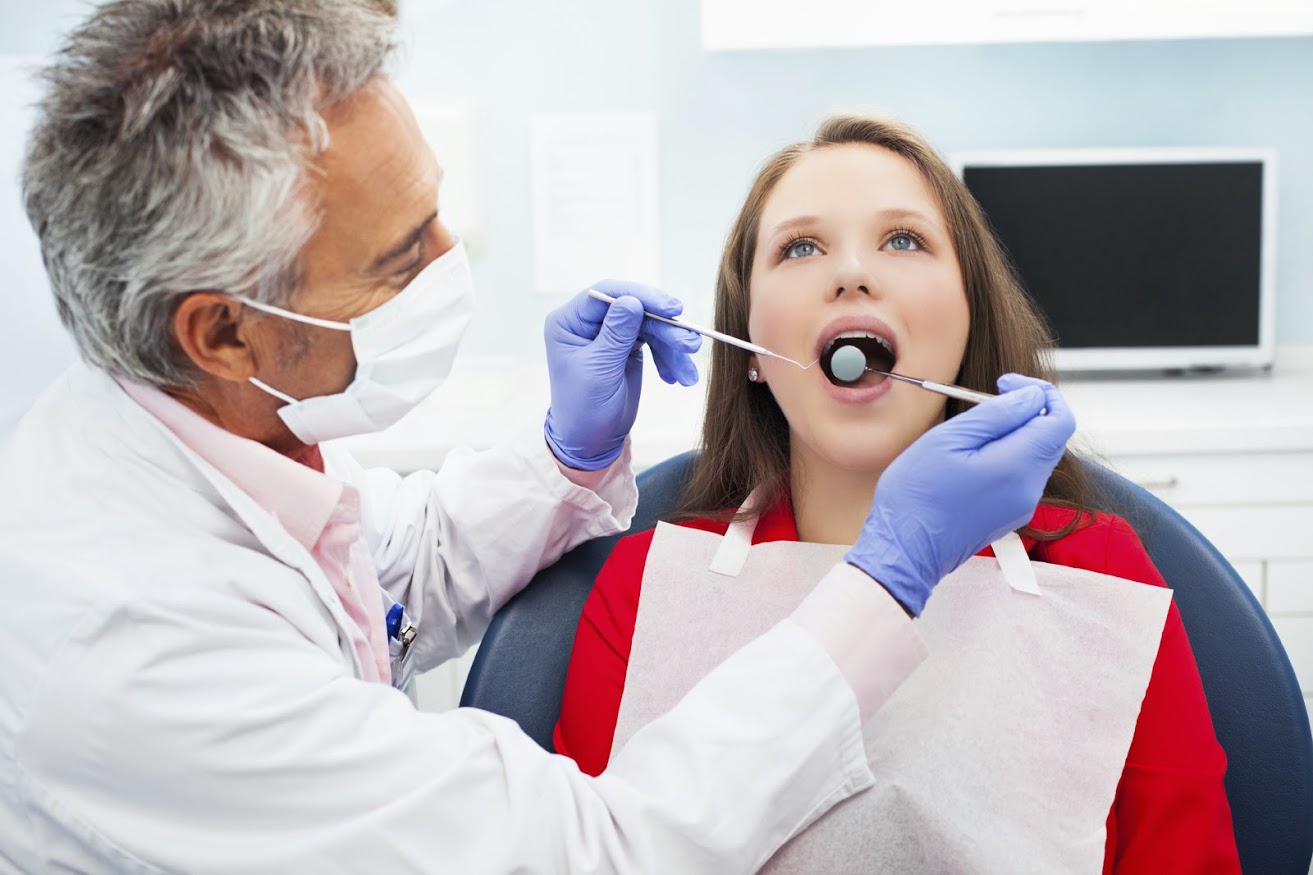June 22nd, 2018

Sports are great for children for a variety of reasons. Children can develop their motor skills, learn how to solve conflicts and work together, and develop their work ethics. As a parent, you may recognize the benefits of sports, but also naturally worry about your child’s health and safety. Your job goes beyond providing a water bottle and making sure your child follows the rules of the game.
Although you may not think of your child’s teeth first when you think about sports, accidents can happen that affect your children’s teeth. A stray hockey stick, an errant basketball, or a misguided dive after a volleyball are examples of ways a child could lose a tooth. In fact, studies show that young athletes lose more than three million teeth each year.
Becoming a Better Athlete to Protect Teeth
Becoming a better athlete involves refining skills, learning the rules of the game, and being a good sport. These components are not just about winning. They are also about safety. Young athletes who are better ball-handlers and who are careful to avoid fouls and penalties are less likely to have harmful contact with the ball, teammates, or opponents. Children who are better roller-bladers are less likely to take a face plant into the blacktop, and more likely to save their teeth. Being a good sport and avoiding unnecessary contact is one way to protect teeth.
Proper Protective Equipment for Teeth
If your child is in a sport that poses a high threat to teeth, it is essential for your child to wear a mouthguard. Mouthguards fit your child’s mouth and consist of soft plastic. Dr. Kozica can custom fit a mouthguard if generic ones are uncomfortable. While children may resist wearing a mouthguard initially, your persistence in insisting that they wear it should be enough to convince them. A helmet or face mask provides additional protection.
While prevention is best, rapid treatment can improve the situation if your child does happen to lose a tooth during sports. Rapid implantation can work in about ten percent of cases. To learn about ways to save a lost tooth, contact our Worcester office.
June 15th, 2018

Have you ever wondered why people have wisdom teeth? These are a third set of molars that come in behind the rest of all your other teeth, usually during early adulthood. Scientists and anthropologists believe that wisdom teeth are a result of evolution, because our ancestors needed these extra teeth to handle their primitive diets. Nowadays, the average diet consists of fewer hard-to-chew foods, which renders wisdom teeth largely superfluous.
Most people begin to experience wisdom teeth pain between the ages of 17 and 25. Our ancestors nicknamed them wisdom teeth because they appeared at a time in life when we supposedly grew wiser.
If you’ve already had your wisdom teeth removed, you know how painful they can become if they aren’t taken care of promptly. If not, watch out for discomfort in the back of your mouth and let Dr. Kozica know right away if you think your wisdom teeth are coming in.
In some cases, people do not experience any problems or discomfort with their wisdom teeth. These patients may keep their wisdom teeth intact if there’s enough room in their jaw to fit them properly. But this is generally not the case, so wisdom teeth can cause several concerns, depending on which direction they grow.
Common problems include:
- Damage to surrounding teeth due to the pressure from the emerging teeth
- Infection that causes the surrounding gums to swell and become painful
- Tooth decay due to the lack of room to clean the teeth properly
- Impaction (when the tooth is unable to break through the skin)
- A cyst that may damage the jaw, the surrounding teeth, and nerves
If you haven’t had your wisdom teeth removed yet, there are many symptoms to watch out for when they begin to grow. Symptoms may include:
- Pain or stiffness in the jaw
- Tooth irritation
- Swelling of gum tissue
- Crowding of other teeth
- Spread of tooth decay or gum disease on nearby teeth
If you’ve noticed these symptoms, schedule an appointment at our Worcester office. Don’t forget: This is a common procedure that will take some time to recover from. Allow your mouth to heal, and then you’ll be able to get back to a normal routine quickly and be free from pain!
June 12th, 2018
Mercury is the most poisonous, non-radioactive, naturally occurring substance on earth. Mercury Amalgam dental fillings (i.e., silver fillings) continuously release poisonous mercury vapor, which enters your body and accumulates over time.

When mercury accumulates faster than the body can remove it, mercury toxicity occurs. The time it takes for symptoms to appear varies greatly depending on a number of factors. Early symptoms may be sporadic and can include headaches, memory loss, digestive disorders, ringing in the ears, and depression.
Over time, mercury toxicity can affect all our body’s systems. Some people are genetically susceptible to developing chronic neurological conditions such as Alzheimer’s. To decrease the possibility of developing severe health issues, it is important to have mercury amalgam fillings removed safely.
Dr. Kozica is SMART-certified (Safe Mercury Amalgam Removal Technique), and he follows protocols established by the International Academy of Oral Medicine and Toxicology (IAOMT). These techniques prevent you from ingesting or inhaling mercury or mercury vapors.
During amalgam removal, patients will wear protective eyeglasses and body coverings and breathe in air through an oxygen mask, while the teeth are isolated using a rubber dam. Our staff will wear mercury-absorbing masks, the air in the exam room will be filtered to remove harmful mercury vapor, and the amalgam fillings will be removed in chunks, using high-speed drills and suction.
Dr. Kozica and the team at Kozica Dental have been providing dental services to patients in the Worcester area for years. We are SMART-certified to remove toxic mercury fillings for patients of all ages. Call us at (508) 755-0751 or request an appointment now. We look forwarding to working with you!
June 8th, 2018

Your regularly scheduled dental checkups with Dr. Kozica are not just meant to make your smile prettier and healthier. Your mouth’s health has an important impact on your overall physical health as well!
While you may brush your teeth twice a day and even floss, we would like to remind you that dental checkups with Dr. Kozica every six months aren’t just about addressing problems and reacting, they are about cavity and gum disease prevention.
In addition to a twice yearly thorough teeth cleaning and polishing at Kozica Dental, these regular visits help us detect and prevent the onset of tooth decay and gum disease. During your visit, we’ll check the health of your mouth, teeth, gums, cheeks, and tongue. We’ll also check old fillings and restorations, as these can wear away over time from constant chewing, grinding, or clenching.
It’s important to know that the majority of dental problems do not become visible or painful until they are highly advanced. And, unfortunately, serious oral issues are painful and expensive to treat.
While Dr. Kozica and our team always strive to provide unmatched dental care for you and your family, we are also committed to your overall wellness as well! A deep cleaning twice a year is the best way to prevent any problems that may have gone unseen. If you are overdue for your next cleaning, please give us a call to schedule an appointment at our Worcester office!




